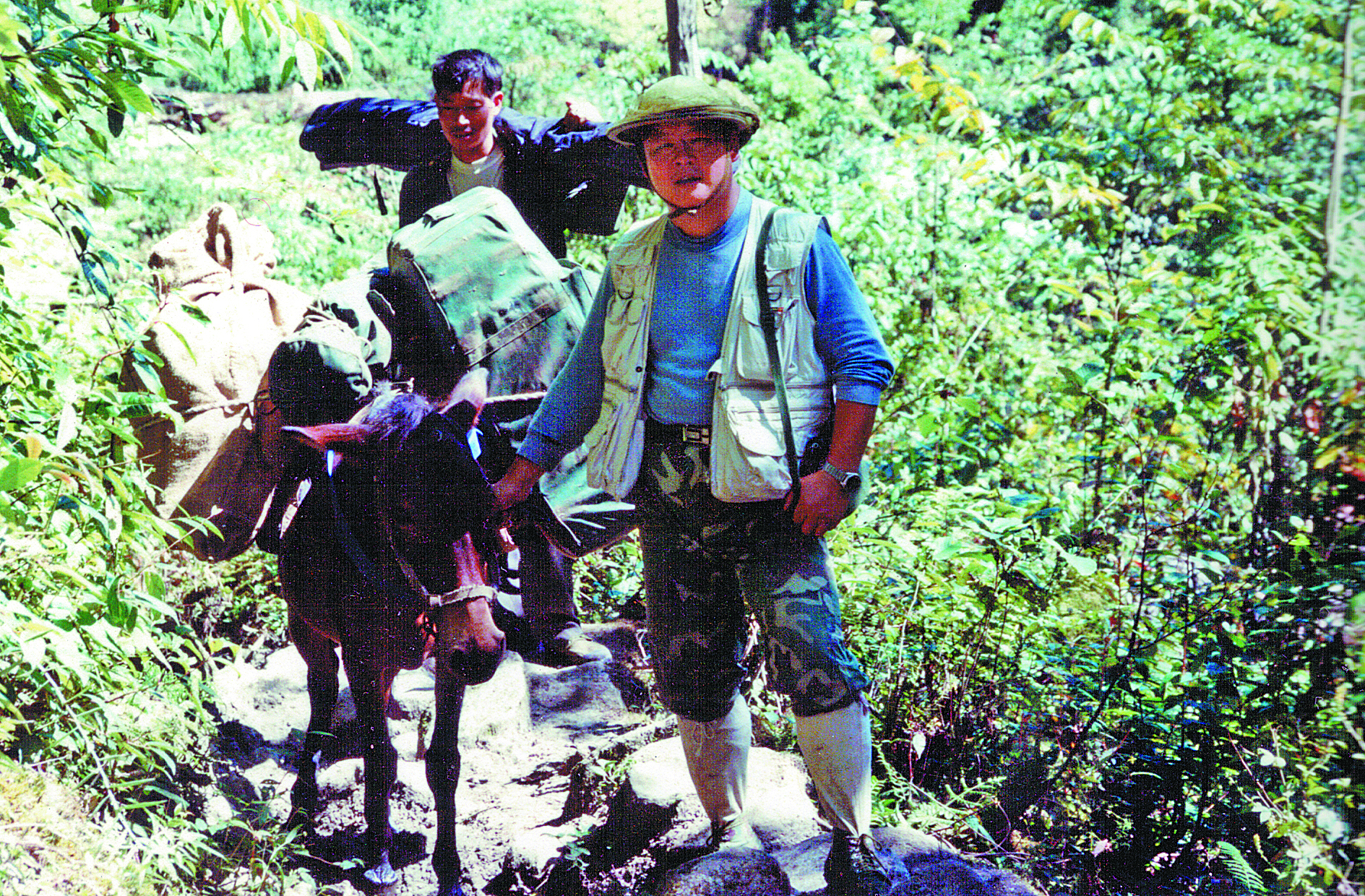Elephant photographer reviews his career through long lens of memory
A renowned Chinese wildlife expert recalls his adventures and proposes measures to reduce conflict between the giant animals and humans. Yang Wanli and Li Yingqing report from Kunming.


Early Days
When he started, elephant conservation was still at an early stage. He recalled that forest rangers didn't even have two-way radios, let alone cameras, and the only vehicle on most farms was a motorized tricycle.
"While chasing after elephants, I fell into muddy puddles from my motorbike many times," Zhou recalled with a laugh.
As an experienced "elephant chaser" he said it's almost impossible for humans to keep up with the animals in the wild as they move faster than one would imagine.
"They run quickly (about 25 kilometers per hour). In the open, the nearest a human should get to one of these giants is about 200 meters," he noted.
Compared with pests such as mosquitoes and leeches that are "programmed" to attack their prey, he said many wild animals, including elephants, will not hurt humans unless provoked.
Recalling episodes of close contact with the animal, Zhou clearly remembers a terrifying meeting with a bull elephant in 1993.
Just a few days after the Spring Festival holiday, Zhou entered a forest in the Mengyang Nature Conservation Area, a major elephant habitat in Yunnan's Xishuangbanna National Nature Reserve.
To locate a herd as quickly as possible, he had invited two brothers who lived in Mengyang to act as his guides. "It wasn't the first time we had worked together to record elephants. But the trip began badly. We chased a herd for three days but couldn't locate it," he said.
Zhou said the equipment used by wildlife photographers at the time was much heavier than modern appliances, while batteries only lasted about 30 minutes. In addition to all his gear and food, he carried a machete to cut a path through the ancient forest.
"All that gear weighed at least 30 kilograms. We were exhausted, so I decided to stay at a major pass on my own while the brothers continued to follow the elephants' tracks. They helped me build a viewing platform in the trees," he said.
Despite a long afternoon of waiting, Zhou saw neither the elephants nor the brothers, so he decided to return to the forest station before darkness fell. To that end, he set out walking through the forest carrying his bags.
"Suddenly, I heard a loud noise. It was the sound of bamboo cracking. I stopped and traced the source-it was a herd of 11 elephants, including a newborn calf, about 200 meters from me," he said. "Too excited to think clearly about the risks, I ran toward them," he recalled.
Suddenly, a bull elephant appeared in front of him. The distance between the two was only 30 meters. "I knelt down and turned my camera lens toward it, but within 10 seconds it had rushed up to me," he said.
At this life-or-death moment, he remembered some advice the brothers had given him, and quickly rolled down a hill. "They had told me that elephants slow down when they are going downhill to control their considerable weight," he said.
























